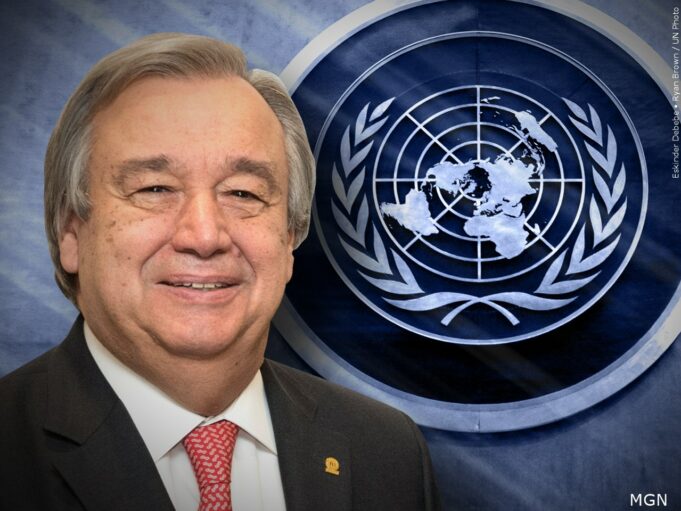The UN secretary-general on Oct. 3 said he was committed to ensuring that the organization is a place where “youth voices are heard, and their ideas lead,” as he spent the day in Barbados which hosted a major UN conference on trade and development, focused on the need to build a global green economy and recover equitably from the Covid-19 pandemic.
António Guterres arrived in the Caribbean island nation on Oct. 2 and will be addressing the hybrid format UNCTAD15 conference which began on Oct. 3, under the theme, “From inequality and vulnerability, to prosperity for all.”
Kenyan President Uhuru Kenyatta gave the opening remarks virtually, followed in the Barbadian capital Bridgetown, by the event’s host, Prime Minister Mia Mottley, and secretary-general of UNCTAD, the UN Conference on Trade and Development, Rebeca Grynspan.
Recovery, debt focus
In his remarks, Mr. Guterres will underscore the challenges of tackling debt distress and the need to mount a sustainable and equitable recovery for all, according to his deputy spokesperson, who briefed journalists at UN Headquarters.
“He is also expected to highlight the need to re-ignite the engines of trade and investment, and ensure they benefit the poorest countries, as well as the need to build a global green economy,” said Farhan Haq.
Protect the most vulnerable
In a tweet on Oct. 3, after meeting Prime Minister Mottley—who will serve as president of UNCTAD15— the UN chief reminded that in a powerful speech to the UN General Assembly recently, she had highlighted the importance of investing in protecting the most vulnerable across the world; “a priority for this island nation, and one I’ll continue pushing for,” added Mr. Guterres.
The secretary-general, accompanied by Ms. Mottley, visited an area impacted by sea-level rise, coastal erosion and land slippage, learning about the efforts being made in Barbados to address climate change induced challenges.
Mr. Guterres stressed the need to support developing countries with climate finance as “the goal of adaptation is to build resilience to prepare people for the devastating impact of climate change.”
He noted that “small island states all around the world cannot do it without much more support.”
He again appealed to developed countries and international financial institutions to provide at least “50% of climate finance to support developing countries to adapt and build resilience to climate change.” He emphasized that this is a key priority for COP26 in Glasgow.
Prime Minister Mottley stressed that unless developing countries have access to funds for adaptation, they “will not make it.” She emphasized “that it’s going to be challenging for the global community to reach the limit for climate change of 1.5 degrees.” She highlighted that small island developing states did not cause the climate crisis, yet, they are “asking us to be both the victim and to carry the cost.” This is “fundamentally immoral and unjust,” she added.
Along with M. Mottley, the secretary-general also met what he described on Twitter as “a dynamic group” of young Barbadians, “working on innovative solutions to the world’s great challenges—from climate action, to Covid-19 recovery.”
Generational failure
In a frank exchange, the UN chief told the youth that his generation has failed in meeting expectations to pass a world in good shape to the next generation. He stressed that this generation “cannot afford to fail,” and it is therefore incumbent upon leaders to support young people in their efforts.
Maria Marshall, a 12-year-old climate activist and UNICEF youth advocate in Barbados, told the gathering that she sees her “future Barbados as a place where people are fully educated on the issues of climate change and environmentally conscious,” and actively pursues this passion through her social media networks.
Environmental researcher Amina Desai underlined that “the threat of climate change is an existential threat.” She noted that “the days are becoming unbearably hot, and the ocean that we love and frolic in can easily turn on us to destroy homes and livelihoods.” She added that she hopes “to be able to help build a more resilient Barbados through her climate action.” (UN News)













